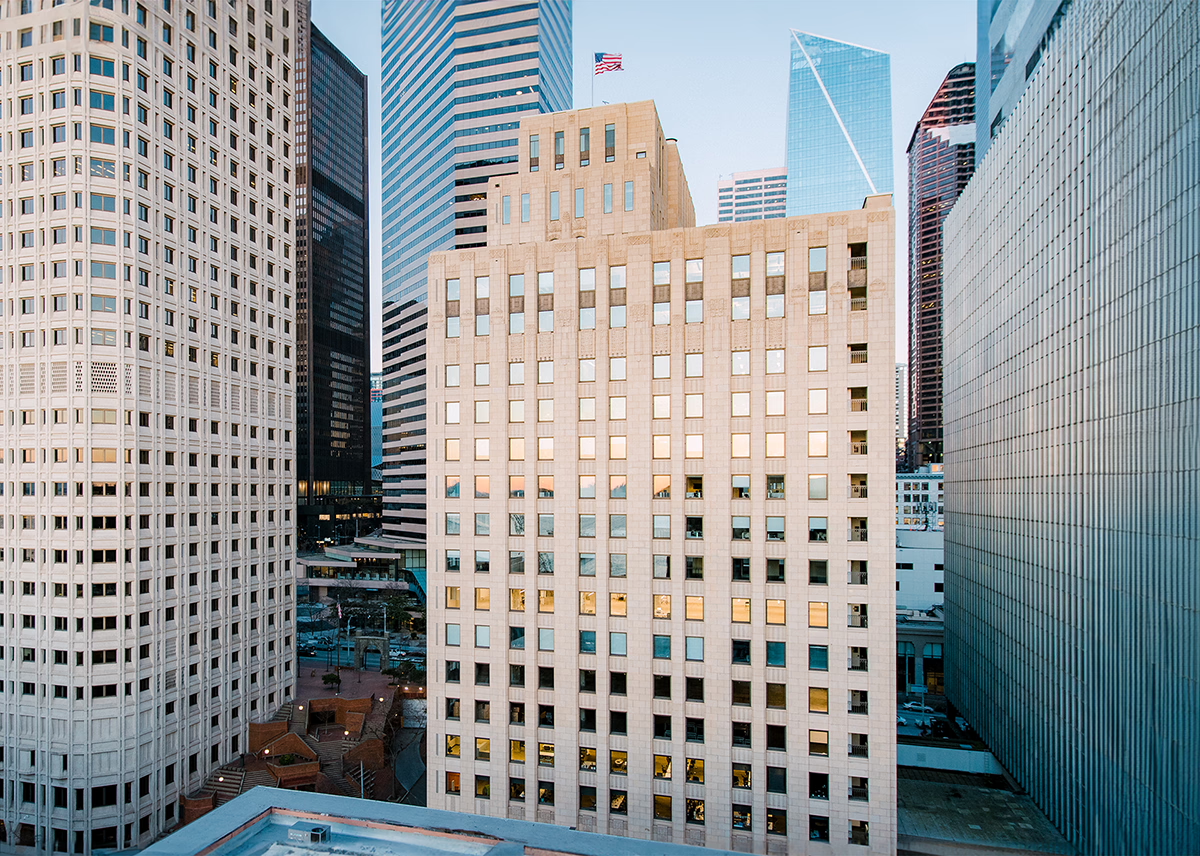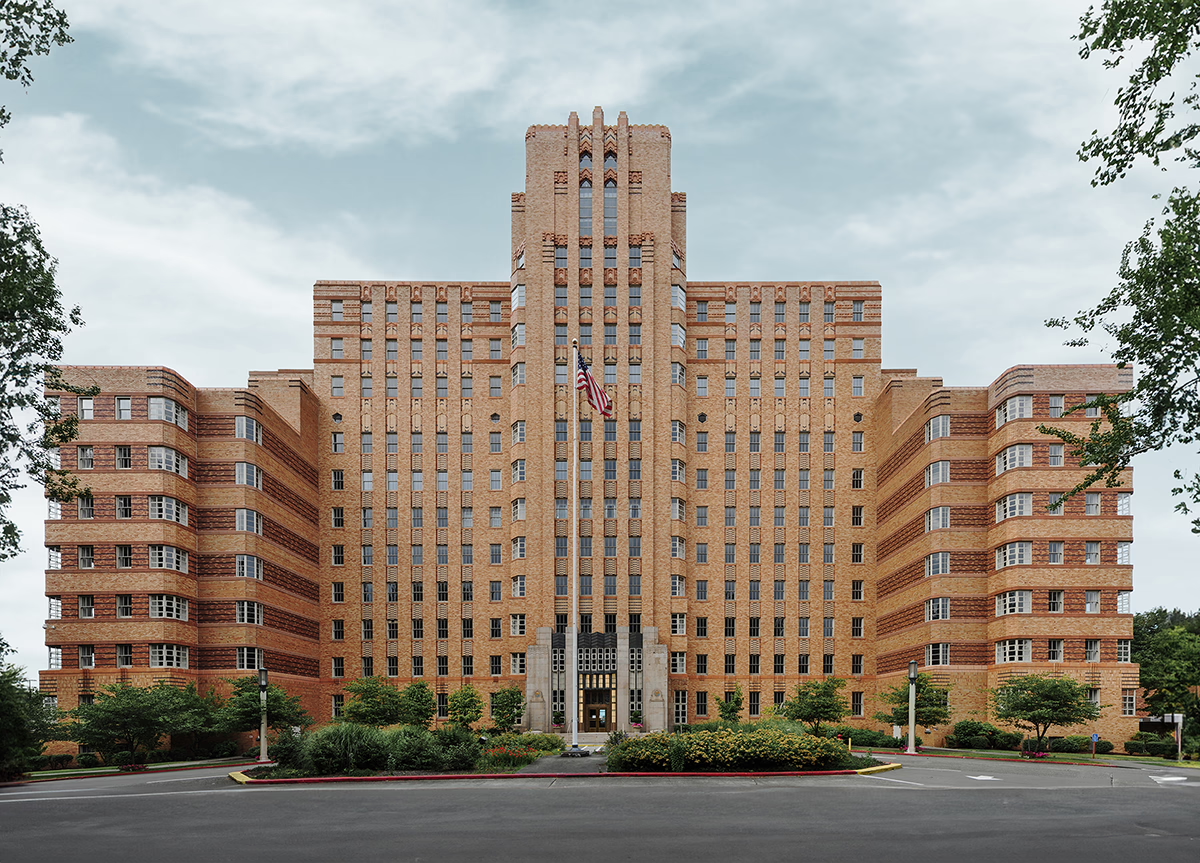Exchange Building vs Pacific Tower


Comparing the Exchange Building and the Pacific Tower is interesting because they both stand in Seattle, WA, and were completed within 3 years of each other, but they were designed by different architects.
This offers a unique glimpse at how rival designers approached projects in the same city during the same era.
Height & Size
The Exchange Building is clearly the larger tower of the two, both in terms of height and number of floors. It rises to 279ft (85m) with 23 floors above ground, while the Pacific Tower reaches 220ft (67m) with 16 floors above ground.
Of course, each project may have faced different briefs or regulatory constraints, which we don't really know about and could also explain the outcome.
Architectural Style
Both the Exchange Building and the Pacific Tower were designed in line with the aesthetic conventions of the Art Deco style.
At the time, this style was at the height of its popularity. So both John Graham & Associates and Bebb & Gould followed what was in many ways expected of them, producing designs that fit comfortably within contemporary architectural norms, rather than breaking with convention.
Uses
The Exchange Building is primarily commercial, while the Pacific Tower is primarily education.
Originally, the Pacific Tower was designed for medical, but over time it was converted to education. The Exchange Building by contrast has maintained its original role.
Structure & Facade
These two towers illustrate the many possible ways to combine structure and enclosure in skyscraper design.
| Exchange Building | Pacific Tower | |
|---|---|---|
| John Graham & Associates | Architect | Bebb & Gould |
| 1930 | Year Completed | 1933 |
| Art Deco | Architectural Style | Art Deco |
| Commercial | Current Use | Education |
| 23 | Floors Above Ground | 16 |
| 85 m | Height (m) | 67 m |
| 29,299 m² | Usable Area (m²) | 24,127 m² |
| Cast Concrete | Main Facade Material | Brick |
| WA | State | WA |
| Seattle | City | Seattle |
| 821 Second Avenue | Address | 1200 12th Avenue South |